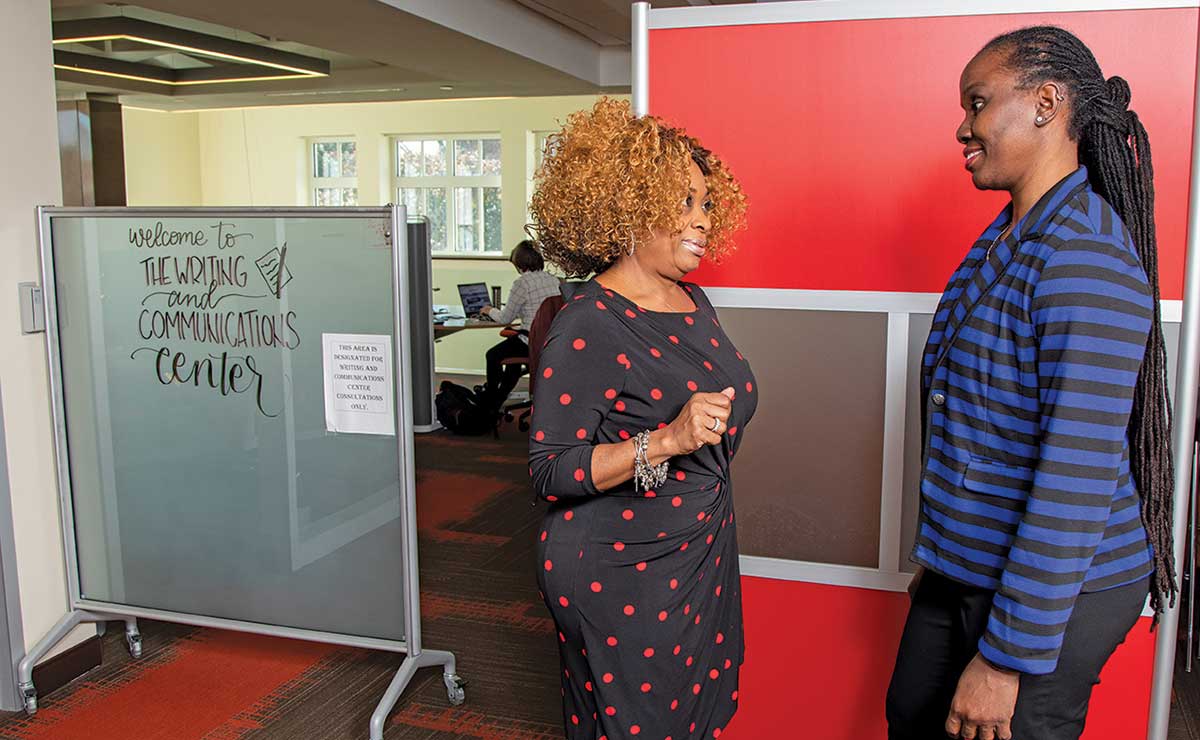North Carolina’s Historically Black Colleges and Universities (HBCUs) built a distinguished history of serving adult learners with a clear, caring focus on students’ needs—and now they are leading the way for others to follow.
Today, with a boost from its 10 accredited HBCUs, North Carolina is at 54 percent overall attainment, with a goal of 66 percent for adults ages 25-44 by 2030. College degree and certificate attainment for students of color are rising, while persistent equity gaps remain. Attainment for Black adults as of 2022 was 37.2 percent, slightly above the national average.
These efforts were bolstered in 2021 when Lumina Foundation chose five North Carolina HBCUs for its HBCU Adult Learner Initiative: Elizabeth City State University, Fayetteville State University, Johnson C. Smith University, Winston-Salem State University, and Shaw University.
Since their inception as institutions tasked with educating the formerly enslaved and their descendants, HBCUs have served all students—regardless of race, gender, socioeconomic status, or age. In many ways, HBCUs are experts in serving adult learners because they have been doing it longer than any other sector in higher education.
Over the past two years, the five universities significantly increased capacity, working to strengthen data infrastructure, improve onboarding processes, increase adult student services, and deepen college leaders’ understanding of adult learners.
Lumina’s evaluation partners at the UNCF Frederick D. Patterson Research Institute recently issued a report detailing promising practices and policies from the perspectives of faculty, staff, and students. Here are a few:
- Offer flexible attendance and assignment deadline policies. Faculty members think differently about policies and practices, such as assignment deadlines and classroom attendance, leading to more flexible practices that meet the needs of adults juggling studies with jobs.
- Host adult learner orientations. Black adult learner sessions, either virtual or in-person, offer a welcoming environment to introduce learners to available resources and support.
- Hire staff whose sole purpose is to advocate for Black adult learners. Black students described how critical it was to have advocates, especially at the director or associate director level. These advocates help provide answers about programs, scholarships, and deadlines.
All five schools recommend these steps: To be inclusive, colleges need to fund offices and positions dedicated to the needs of adult learners, incorporate adult learners in the strategic plan, and encourage collaboration among departments for adult learner success.
Reaping rewards
Students across the Tar Heel state are reaping the rewards of these changes. New programs at Fayetteville State University are helping learners pay less tuition and get the credits they deserve when transferring.
Notably, North Carolina HBCUs provide not only accessible and affordable education but also foster a profound connection to Black students’ racial identity and lived experiences. They provide a safe haven, especially at a time when Black learners are increasingly reporting experiences of racism on campus. North Carolina’s HBCUs award about 43 percent of Black undergraduate degrees in the state, and as a result, their economic impact is sizable.
This report’s findings remind us why HBCUs were created and show these five North Carolina HBCUs’ long-standing success in serving Black adults. As the torchbearers of inclusive, equitable, and quality learning, with these fresh insights and data, HBCUs across North Carolina will continue illuminating the path for many of us to follow.
